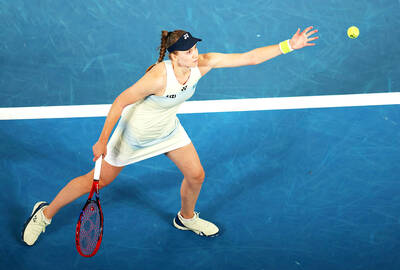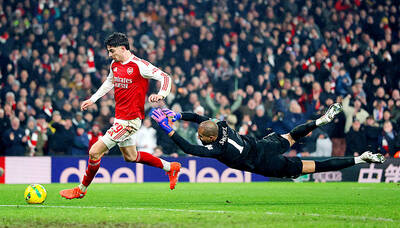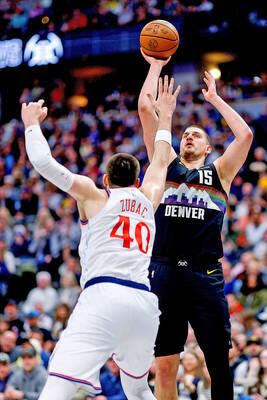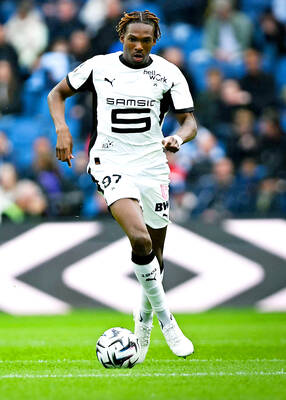The fans packed in to watch races at Baghdad’s horse track are nothing like the mint julep-drinking, hat-wearing crowd at the Kentucky Derby.
A man sells soft drinks he’s keeping on ice in a broken bathtub.
A few in the throng drink beer while clutching their betting sheets and nubby pencils. Stone guard towers stand just beyond one end of the track, watching over the dusty oval where jockeys in white pants and colorful, silky shirts surge toward the finish line.
Baghdad’s once-thriving horse racing industry has seen better days — and a better clientele. Nevertheless, a group of die-hard horse lovers and gamblers meet twice a week at a track in western Baghdad to bet on and cheer their favorites in one of the few areas of Iraq that is free from religion and sectarian politics.
“I would come even if tanks surround this place,” said Haidar Rabat, a butcher from Baghdad who’s a regular. “We come here to forget reality.”
Iraq’s stables were once among the most successful in the Middle East, full of well-groomed Arabian horses that drew the city’s elite to races at the track’s original location in the capital’s upscale Mansour neighborhood, but after a nearly 20-year ban on international racing and a war that drove many breeders into exile and left many horses dead, the country’s racing scene is in shambles.
“It’s in a devastating state, a reflection of the country,” said Mohammed al-Nujaifi, a member of a prominent Iraqi family that has bred, raced and exported Arabians for generations from its farm in northern Iraq.
Al-Nujaifi has bred four of the world’s top horses and still owns two of them, al-Dahis and Izz al-Khail, according to the International Federation of Arabian Horse Racing Authorities.
This season, eight of his purebred Arabians will compete in Europe, while 25 of his horses — all bred on the farm in the city of Mosul — will race in Baghdad.
Fans gather every Tuesday and Saturday, betting on a five-race card featuring purebred Arabians and Anglo-Arabian horses.
They compete on a dirt oval at distances of up to 2,400m for prize money that can reach US$2,200. The exception is the 2,400m Baghdad Derby, which has a purse of US$4,000 and caps the track’s eight-month racing season.
The April race attracted several thousand spectators — a significant crowd in a country where insurgents target large gatherings and establishments that serve alcohol and allow gambling.
Women do not attend the races and the crowd is packed with men, many of whom are betting even though both Shiite and Sunni sects of Islam strictly forbid it.
The Baghdad Equestrian Club, as the track and stables are called, was established in the Mansour area in the 1920s. Former Iraqi president Saddam Hussein’s sons were racing fans and the deposed president liked posing for photos on horseback.
Then he ordered the invasion of Kuwait in 1990. More than a decade of international sanctions followed as horse racing was among the Iraqi sports that was kicked out of international organizations and banned from world competitions.
In another blow, Saddam ordered an end to gambling at the track in the mid-1990s, after Iraqi women complained their husbands were wasting family savings wagering on horses. The betting ban — and the building of a giant mosque in Mansour that forced the track’s relocation to its current site — also was part of Saddam’s efforts to earn favors with the Sunni clergy and conservative tribal leaders at a time when he was deeply unpopular due to the country’s repeated wars and international sanctions.
The anti-gambling measures were part of a wider campaign by the dictator to curb Iraq’s secular lifestyle and Western attitudes, including the free flow of alcohol.
As a result, Iraq’s horse population plummeted from about 200,000 in the 1980s to around 2,000 just before the US-led invasion in 2003, al-Nujaifi said, adding that the Iraqi Arabian Horse Organization’s stud book listed only 200 horses late in 2002, a sharp drop from the more than 1,000 it had just a few years earlier.
“Most of the horses were killed, starved, stolen or were smuggled and sold abroad,” he said.
Things only got worse after the US invasion, said Mohammed Naji, the deputy president of Baghdad’s Equestrian Club.
“The invasion destroyed all the club’s facilities and after the occupation the looting added more destruction,” Naji said, noting that the surviving horses were left hungry and wandering the countryside.
The club members invested about US$500,000 to rebuild the track in western Baghdad and -racing restarted in 2004, just when a bitter sectarian war between Iraq’s Sunni and Shiite populations also was brewing.
Many breeders fled the violence and kidnappings that targeted the country’s middle class. Some breeders have since returned, and many see a brighter future for racing with horses being imported from Turkey and Iran.
“It’s still more of a hobby than it is a job,” said Bafer al-Daoud, a horse owner with four stables in Baghdad. “Although the prices of horses are getting higher, we still have a lot to do to rehabilitate the industry.”
The track needs a stadium and infrastructure, including paved roads and a new sewage system, Naji said. Security, however, does not seem to be a concern for the race fans even though the site is in the former heartland of the Sunni insurgency.
Naji said he was hoping the government would notice the problems and contribute to restoring part of Iraq’s national heritage, but as in many other sports, race fans have been disappointed by the government’s lack of interest.
They may, however, be getting a new booster. Mohammed al-Nujaifi’s brother Osama has just been elected as parliament speaker and some racing fans are hoping that he might help renew interest in their sport.
But for the crowd gathered on a recent Tuesday, even the meager track was a welcome respite from the challenges of living in Iraq.
“No politics and no Shiites or Sunnis are allowed,” said Mustak Reyan, an unemployed worker and track regular. “Here we only have eyes for horses.”

HEATED RIVALRY: The pair had met 14 times previously, with Sabalenka winning eight of the encounters and entering the final as the favorite to take the title Elena Rybakina took revenge over world No. 1 Aryna Sabalenka to win a nail-biting Australian Open final yesterday and clinch her second Grand Slam title. The big-serving Kazakh fifth seed held her nerve to pull through 6-4, 4-6, 6-4 at Rod Laver Arena in Melbourne in 2 hours, 18 minutes. It was payback after the Belarusian Sabalenka won the 2023 final between two of the hardest hitters in women’s tennis. The ice-cool Rybakina, 26, who was born in Moscow, adds her Melbourne triumph to her Wimbledon win in 2022. It was more disappointment in a major final for Sabalenka, who won the US Open

GUNNING FOR A WIN: The victory sending Arsenal to the final for the first time in six years was cathartic for a team who had lost their previous four semi-finals Arsenal on Tuesday reached the League Cup final for the first time in eight years as Kai Havertz sealed a 1-0 win against Chelsea in the semi-final second leg. Mikel Arteta’s side had put themselves in pole position in the first leg and Havertz came off the bench to finish the 4-2 aggregate victory in the closing moments at the Emirates Stadium. It was a cathartic triumph for the Gunners, who had lost their previous four semi-finals in last year’s UEFA Champions League and League Cup, the 2022 League Cup and the 2021 UEFA Europa League. In their first final for six years,

Denver superstar Nikola Jokic returned from a 16-game injury absence to post a 31-point, 12-rebound double-double on Friday and propel the Nuggets to a 122-109 NBA victory over the Los Angeles Clippers. Three-time NBA Most Valuable Player Jokic had not played since suffering a bone bruise in the left knee he hyperextended in a game against Miami on Dec. 29 last year. The Serbian big man did not miss a beat. He led all scorers, connecting on eight of 11 shots from the field, and also handed out five assists with three steals while playing just 24 minutes, 32 seconds as the

DEADLINE DAY: Rennes’ Jacquet had been linked with a transfer to Chelsea earlier this month, but was reportedly put off the move due to the Blues’ bloated squad Liverpool on Monday won the race to sign Stade Rennais defender Jeremy Jacquet on the quiet final day of the English Premier League transfer window, while Crystal Palace swooped for Wolverhampton Wanderers striker Jorgen Strand Larsen despite the collapse of Jean-Philippe Mateta’s move to AC Milan. The Reds agreed a reported fee of up to £60 million (US$82 million) for the highly rated Jacquet. However, the 20-year-old will not join the Premier League champions until the summer despite Liverpool’s need for defensive reinforcements. Jacquet had been linked with a transfer to Chelsea earlier this month, but was reportedly put off